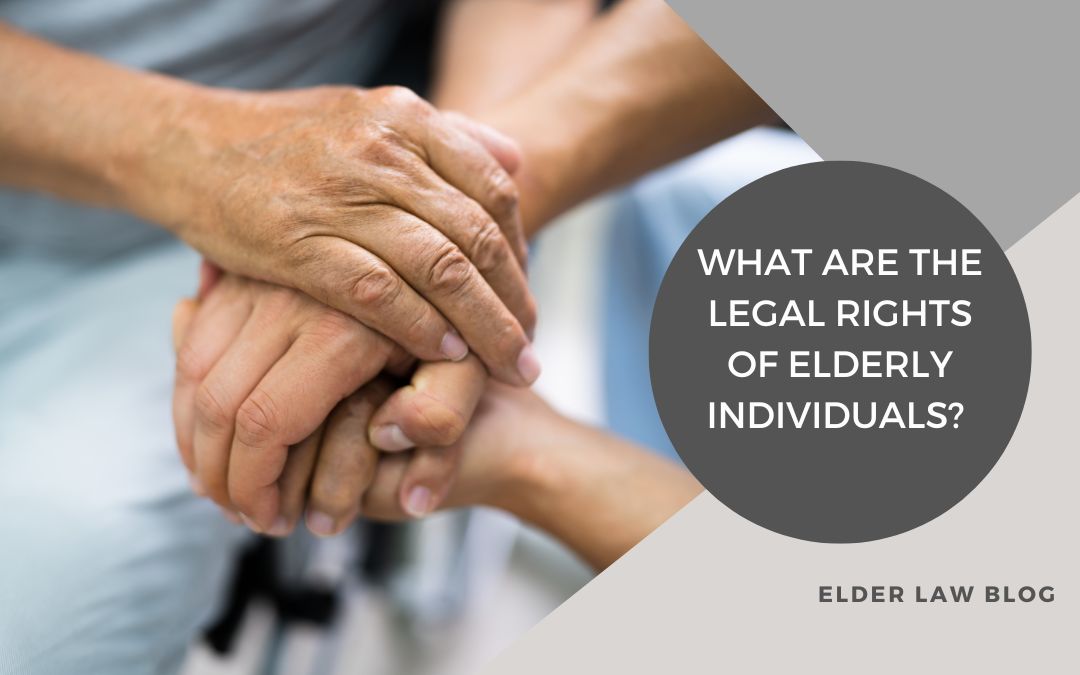Besides civil rights, older adults have the following legal rights:
Right to dignity and respect
Like all human beings, older adults have a right to respect irrespective of their religion, gender, disability, or source of payment. This might be a no-brainer, but we all know how enforcing the right to dignity and respect plays out in the real world. Here’s a recent example of elderly abuse where 2 women were arrested after taunting and abusing elderly women on a live stream.
Estate planning
Estate planning is the process of distribution of assets and property when one passes away. People of all ages (and financial statuses) need to consult with an attorney to protect and plan the distribution of their assets.
Financial administration
Elderly individuals have the right to choose how their money is managed, using methods such as money management programs, representative payees, power of attorney, or trusts. If someone else is managing their money (as a financial power of attorney), the elderly person still has the right to be in the know. Unauthorized control of an elderly person’s money (for example by a nursing home or a family member) is a violation of rights.
Right to privacy
All older adults are entitled to privacy about their personal needs, medical treatment, written/telephonic communications, access to family and resident councils, and mail delivery.
Right to participate in activities
Elder individuals may take part in any nature of social, religious, or community activities unless the participation interferes with the rights of other people.
Right to refuse services
Older adults have the right to decline or say no to performing services for their service provider e.g. administrative duties, overbearing chores, and personal care tasks.
Elder abuse law
Seniors are particularly vulnerable to abuse, primarily when they rely on others for care. This kind of abuse often goes unreported. Elder abuse laws protect seniors from physical, mental, emotional, sexual, and financial abuse and exploitation. If mistreated, seniors can pursue legal action to recover compensation for medical bills, lost income, emotional distress, and physical pain.
Medicare planning
Signing up for Medicare at 65 is important to avoid higher premiums for medical coverage down the line. Elders need an elder law attorney to assess their options (traditional vs. advanced Medicare plan) to get the necessary coverage. It’s important to get this right the first time because you can only change plans during the open enrollment period.
Long-term care planning
Planning for long-term care can cost upward of $100,000 per year. There’s a whopping 70% chance of an elderly individual over 65 needing a long-term care plan near the end of their life.. While choosing a nursing home—and paying for it—can be unpleasant to think about, you can take control over important custody decisions. You can pre-screen nursing homes, choose an at-home setting, and plan for Medicaid.
Incapacity planning
No one wants to put their family in an impossible situation where they have to make tough choices about medical treatment. Incapacity (loss of ability to function) can happen to people at any age.
That’s why having a will, trust (if applicable), and advance directors, and advance directives (i.e. a living will) to specify in advance what medical treatments you wish to accept or decline is important.
Right to choose a guardian or representative
An elderly person has the right to appoint a guardian or representative of their choice for their protection and care.
Social Security benefits
Older adults can start claiming social security benefits between the age of 62 – 70. While income from social security can be a valuable fund, the process to claim these benefits is complex. Claiming before or later than the set timeline may result in a reduction in benefit-derived monthly income.
An elder law attorney can help you choose the best strategy to claim social services benefits as well as address whether an elder individual is eligible for spousal or survivor benefits.
Right to choose a physician
Older adults have a right to choose their physician, and a right to communicate or complain about a medical treatment.
Among other things, an attorney can best guide you to all your legal options and suggest the best course of action in any scenario.

